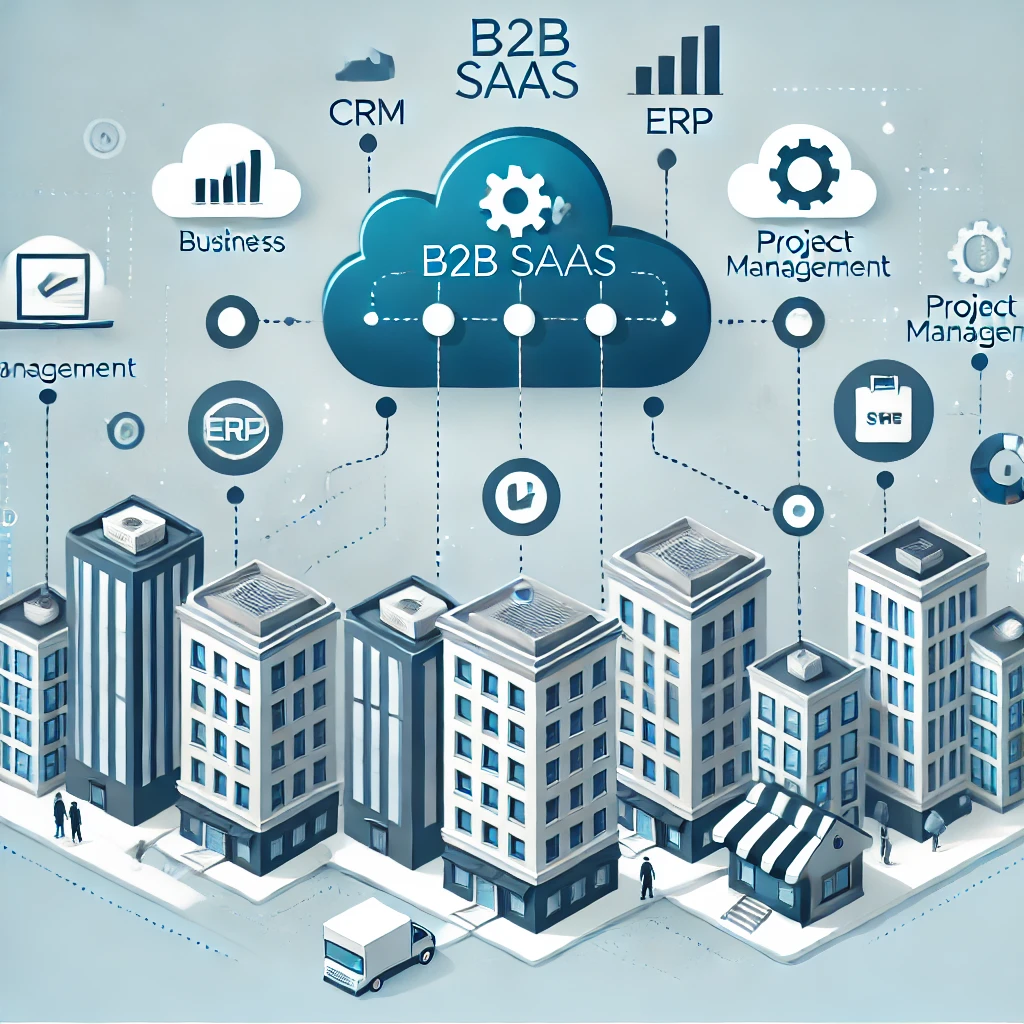B2B SaaS (Business-to-Business Software as a Service) refers to cloud-based software solutions that are sold from one business to another. Instead of purchasing software and installing it on individual machines or servers, businesses subscribe to SaaS products and access them over the internet. This model has grown in popularity due to its cost-efficiency, scalability, and ease of use.
How B2B SaaS Works
B2B SaaS operates under a subscription model where businesses pay a recurring fee (monthly or annually) to use the software. The software provider is responsible for maintaining the product, ensuring its security, and regularly updating it with new features.
This allows businesses to focus on their core operations without having to worry about software management, as the SaaS provider handles everything from updates to security patches.
Key Characteristics of B2B SaaS:
- Cloud-based: Accessible from any location with an internet connection.
- Subscription model: Companies pay on a recurring basis.
- Scalable: Easily scales with the size and needs of the business.
- Automated updates: Users always have access to the latest version without manual updates.
- Accessible on-demand: Users can access the software at any time, ensuring business continuity.
Examples of B2B SaaS Solutions
B2B SaaS applications are used in various industries and serve different functions such as:
- Customer Relationship Management (CRM): Salesforce, HubSpot
- Project Management Tools: Asana, Monday.com
- Enterprise Resource Planning (ERP): Oracle NetSuite, SAP Business One
- Marketing Automation: Marketo, Pardot
- Human Resources: Workday, BambooHR
Each of these software solutions helps businesses streamline their operations, manage teams, or connect better with their clients.
Benefits of B2B SaaS
1. Cost-Efficiency
One of the primary reasons companies choose B2B SaaS products is cost-efficiency. Unlike traditional software, SaaS doesn’t require heavy upfront investments in hardware or licenses. Instead, businesses pay on a subscription basis, which helps in better budgeting and financial planning.
2. Scalability
SaaS platforms allow businesses to scale their operations seamlessly. Whether you’re a small business or a large enterprise, SaaS providers can adjust resources based on your needs without requiring significant changes in infrastructure.
3. Accessibility
Because SaaS products are cloud-based, they can be accessed from anywhere at any time, as long as there’s an internet connection. This is particularly beneficial for companies with remote teams or global operations.
4. Automatic Updates
Traditional software requires manual updates, which can be time-consuming and disruptive. With SaaS, updates and patches happen automatically, ensuring users always have the latest version of the software without downtime or additional cost.
5. Security
Data security is a major concern for businesses, and many B2B SaaS providers offer enterprise-grade security solutions, including data encryption, firewalls, and compliance with global data protection standards.
Market Growth of B2B SaaS
The B2B SaaS industry has experienced exponential growth over the past decade, largely driven by the digital transformation of businesses across the globe. Many companies are now shifting from traditional on-premise software to cloud-based solutions, creating significant opportunities for SaaS providers.
| Statistic | Value | Source |
|---|---|---|
| Global SaaS market value (2023) | $261.91 billion | Statista |
| Annual growth rate of SaaS market (2021-2028) | 27.5% | Grand View Research |
| Percentage of companies using SaaS | 73% | BetterCloud |
| Average number of SaaS apps used by businesses (2022) | 110 | SaaS Management Survey |
| B2B SaaS market size forecast by 2025 | $332.59 billion | MarketsandMarkets |
Challenges of B2B SaaS
While B2B SaaS provides numerous benefits, it is not without its challenges:
1. Data Security and Privacy
Although SaaS providers often invest heavily in security, businesses must trust third-party providers to handle sensitive data. Any security breach could result in significant losses or reputational damage.
2. Dependency on Internet Connectivity
SaaS applications rely on stable internet connections. If there’s any disruption to internet access, it could halt business operations that rely on SaaS products.
3. Vendor Lock-in
Switching from one SaaS provider to another can be complicated, especially if the business has heavily customized the SaaS solution. This could result in vendor lock-in, where businesses are tied to one provider for extended periods.
Future of B2B SaaS
The future of B2B SaaS looks promising, driven by the increasing adoption of cloud-based solutions, AI integration, and the rising demand for automation. As businesses continue to embrace digital transformation, SaaS providers are focusing on developing more intuitive, AI-driven tools that streamline operations and enhance decision-making processes.
Emerging Trends in B2B SaaS:
- AI and Machine Learning: SaaS platforms will increasingly integrate AI to offer predictive analytics, automate tasks, and provide personalized experiences.
- Vertical SaaS: Instead of offering general solutions, vertical SaaS companies focus on specific industries, providing tailored solutions.
- Increased Customization: Businesses are demanding more customizable SaaS platforms that can be adapted to their specific needs.
- SaaS Ecosystems: The development of ecosystems where multiple SaaS tools can integrate seamlessly, allowing businesses to use a range of solutions with ease.
Conclusion
B2B SaaS is transforming how businesses operate by offering cloud-based, cost-efficient, and scalable software solutions. Its widespread adoption is driven by the need for more flexible, accessible, and automated business tools. With the SaaS market expected to grow rapidly in the coming years, businesses that leverage these platforms can enhance productivity, reduce costs, and stay competitive in their respective industries.
By keeping an eye on emerging trends and ensuring that their data is secure, businesses can maximize the potential of B2B SaaS to drive growth and innovation.


